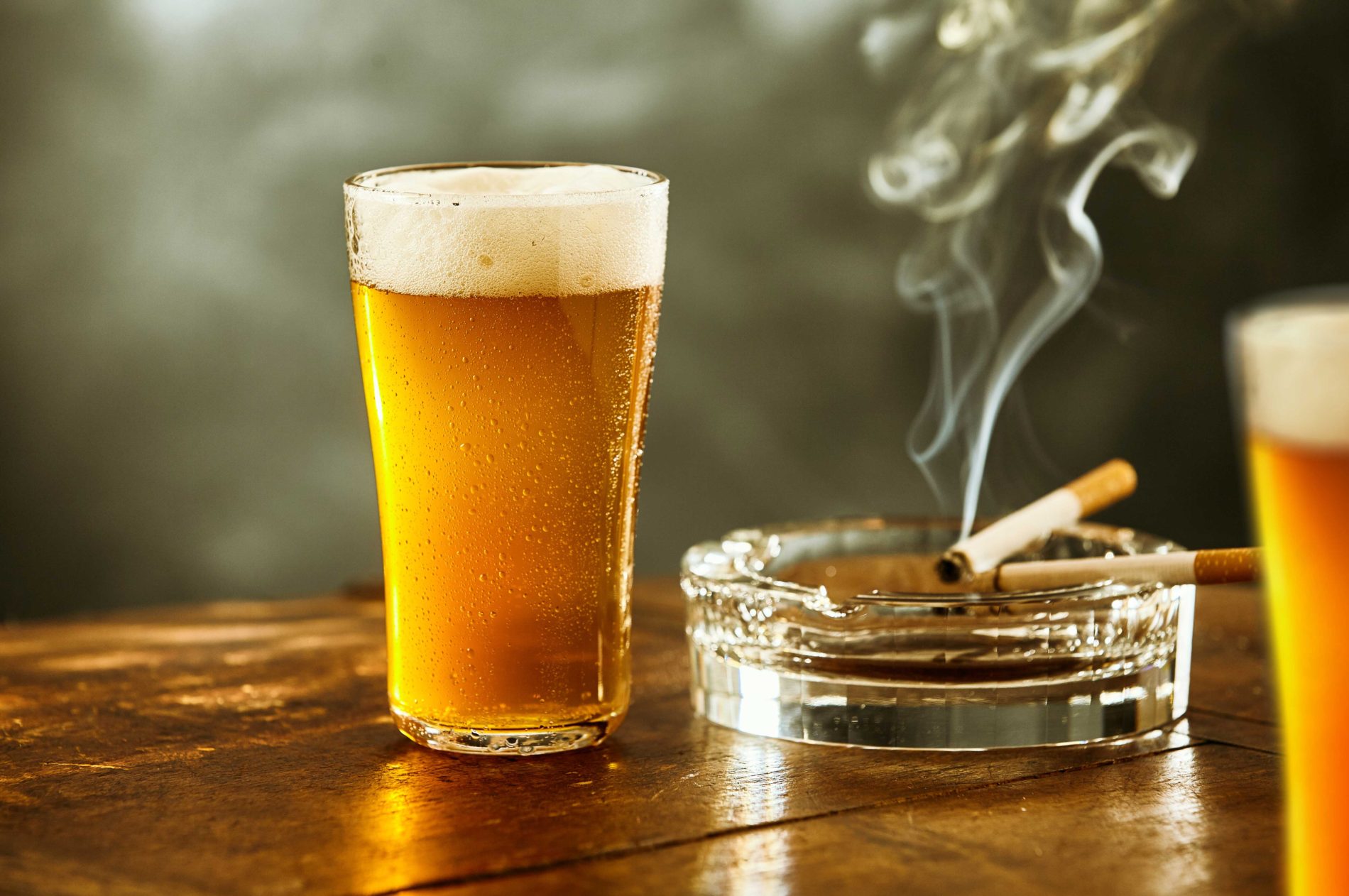How to give up when you’re a ‘social’ smoker
Colleen Dwyer from Vitality partner Allen Carr’s Easyway reveals the truth behind social smoking and the implications of having the ‘odd’ cigarette.

In the latest ONS release,15.1% of people aged 18 years and above smoked cigarettes – that's 7.4m people.
The great news is that smoking is on the decline, markedly so for 18-24 year olds.
If you're looking to kick the 'social smoking' habit, you may be interested in the answers to these important questions from stop-smoking expert, Colleen Dwyer.
The ‘odd’ implications?
The risks are the same as regular smoking.
Smoking one to four cigarettes a day triples a person’s risk of heart disease, so social smokers are still putting themselves at severe risk of tobacco-related disease and illnesses.
It’s important to remember that pretty much every smoker started as a social smoker, with nicotine being one of the most addictive substances.
Do you smoke when you’ve had a drink?
Yes, social smokers often combine smoking with drinking, and it's easy to lose track of the number of cigarettes they've smoked.
Being an occasional or social smoker – or having the ‘odd’ one when you have a drink – also means you could be smoking more than you realise.
Professor Wayne Hall of the University of Queensland says most people who described themselves as 'social' smokers lit up daily, based on data from the 2004 National Drug Strategy Household Survey.
About half of them were having more than five cigarettes a day and a third of them were having more than 10 cigarettes a day.
Can smoking make your hangover worse?
The nicotine hangover is often blamed on alcohol, but over the course of an evening we can smoke more than normal, often speaking more loudly to be heard.
A combination of these two can create a hoarse smoker’s voice, headaches and a general feeling of lethargy.
Is it OK to have one?
There are people who do just have the odd cigarette, but the real question is whether anyone really enjoys smoking – and the answer is resoundingly no.
Whether you smoke one a week or 100 a week, you’ve been conned into thinking the cigarette is doing something for you that it isn’t.
Medical experts are convinced that the only safe strategy is not to smoke at all.
What are the effects?
Studies can now measure the immediate changes in our bodies as we smoke a single cigarette. Here's what happens when we smoke just one cigarette:
- Our blood pressure and heart rate both increase, the heart pumps differently, and the blood flow to the capillaries decreases
- Blood carbon monoxide levels increase. Carbon monoxide takes the place of oxygen in some of your red blood cells, and it sticks on to the red cells for days, preventing them from carrying oxygen
- Other changes happen in our airways: the little finger-like cilia that keep airways clear of phlegm are 'stunned' by chemicals in the smoke and tiny muscles in our airways contract.
These and other changes have a cumulative effect and over time they can eventually lead to cancer as well as conditions such as heart and vascular disease and lung diseases such as emphysema.
Why do we social smoke?
You might argue that it’s the pressure of joining in with other smokers, you could want to keep a smoker friend company or it might simply be something to do with your hands when you’re out.
Although different smokers will give different excuses, addiction is the only true reason for smoking. What makes it difficult for smokers to stop in these situations is the fear that they’ll have a less enjoyable time without cigarettes.
For a lot of social or occasional smokers, the weekend revolves around having a cigarette and they think they’ll have less fun without it.
Can social smoking lead to a habit?
Yes, it’s very likely. The tendency with drug addiction is that you always want more and more of the drug, not less and less.
How can a social smoker stop?
My advice would be to try an Allen Carr Easyway seminar – Vitality members save up to £349 on the Allen Carr Programme.
The key is realising that you don’t need to smoke to enjoy your evening out or time with friends and the Allen Carr Programme can help with that.
I’d also suggest observing smokers when you’re out. You might start to become aware that smoking isn’t making them happy or more sociable.
More often than not, smokers aren’t having a better time, they’re probably just going through the motions. Advice such as chewing gum, holding a pen in place of a cigarette, avoiding smokers or avoiding triggering situations is unhelpful.
By having to distract yourself, it becomes about depriving yourself from cigarettes, and by treating them like forbidden fruit you’re giving them a value they wouldn’t otherwise have.
The real success is in going to social events without cigarettes, without any sense of deprivation and realising that you are having a better time without the nicotine.
.jpg?h=125&w=333&la=en&hash=E77B758D006C575ABD0258BA79238968)
Giving up smoking is one of the best ways to improve your health, which is why we work with smoking cessation experts, Allen Carr.
As a Vitality member, you could save up to £349 on the Allen Carr Stop Smoking Programme.
Eligible for qualifying plans.
Recent articles

Take time for yourself this winter: Your winter survival kit
Even though winter can be a happy time of year, our mental and physical health can suffer. Here are five ways you can take time for your health and thrive this winter

It’s time to talk money for your mental health
Opening up about our finances is never easy, but the impact it can have on our mental health can be more damaging. Why not strike up a conversation this Time to Talk Money Week for yourself or a loved one

’Detecting prostate cancer early saved my life’: James’s prostate cancer story
When he and his wife went for an extensive health check through Vitality, prostate cancer was not on James’s radar. He tells Vitality his story for Men’s Health Awareness Month


